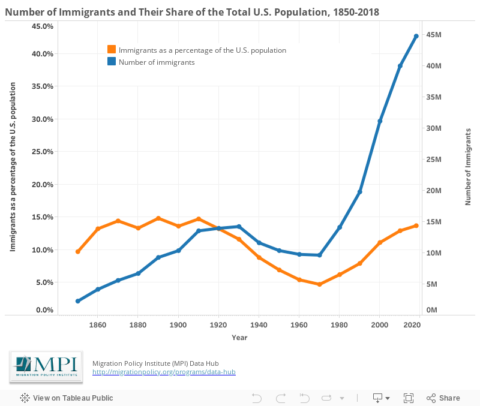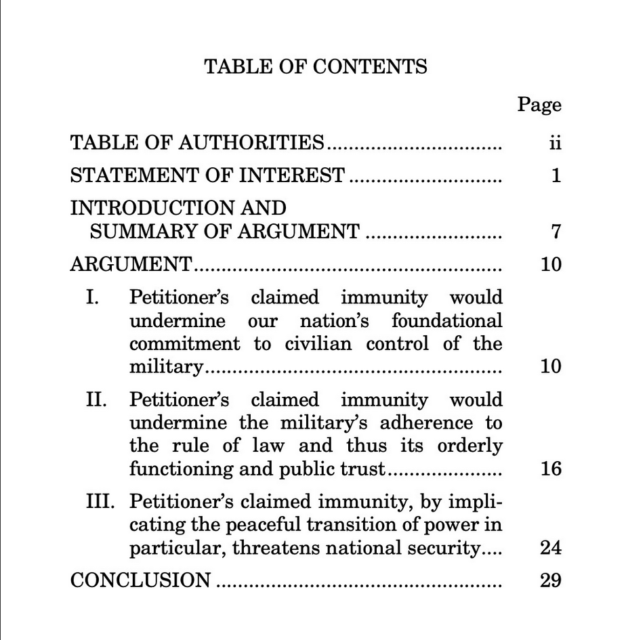Presumptive Republican presidential candidate and former President Donald Trump announced that he has chosen US Senator J.D. Vance of Ohio as his running mate in the 2024 election:

U.S. Senator J.D. Vance speaking with attendees at The People’s Convention at Huntington Place in Detroit, Michigan, 16 June, 2024.
Detail of a photo by Gage Skidmore via Wikimedia Commons.
Donald Trump’s selection of J.D. Vance as his running mate is remarkable in more ways than one. There is Vance’s journey from the broken home in a poor, rural Ohio he wrote about in Hillbilly Elegy, to the Marines, to Ohio State, then to Yale Law School and to the Senate, and now a presidential ticket. Also remarkable is his transformation from a prominent “Never Trumper” — who once called his now – running mate “America’s Hitler” and an “opioid for the masses” — to an enthusiastic Trumpist in the vanguard of the New Right.
For some, Vance’s journey is simple enough to explain: it’s the story of a smart and ambitious “sellout” and an “angry jerk”, as one of his (ex-) friends from law school put it on X yesterday. To this crowd, Vance is only the most extreme example of a familiar story of Republicans kowtowing to the man who took over their party.
But Vance is a much more complicated — and interesting — figure than that.
Agree with him or not, he has undergone a sincere ideological conversion since 2016. That much was obvious to me when I followed him on the campaign trail in 2022. And it’s obvious from any speech or interview he gives. He is not someone who just parrots his party’s talking points. (He has also undergone an actual conversion: I recommend Rod Dreher’s interview with him on the day he was baptized and received into the Catholic Church in 2019.)
In the Senate, he hasn’t just voted with the GOP herd but teamed up with Democrats on a range of bills that stake out new ideological territory for Republicans. He makes some of Trump’s donors uncomfortable.
By picking Vance, Trump has made clear his project is about more than personality. The Republican presidential ticket now has a distinct ideological flavor. It has teeth. National Review‘s Philip Klein called the pick “another nail in the coffin of Reagan Republicanism”. (This is not a compliment at that magazine.) Vance is a prominent critic of U.S. involvement in Ukraine (for more on his foreign policy views, I recommend this piece by my colleague Isaac Grafstein).
He’s also economically unorthodox — and more relaxed about government involvement in the economy than many of his colleagues. He has backed a higher minimum wage and praised Lina Khan, Joe Biden’s FTC chair and a proponent of more robust antitrust policies.
Did these ideological considerations clinch it for Vance? I suspect a bigger factor was that in Vance, Trump saw someone who was welcomed into the elite — as Trump never has been — but who turned his back on it.
Before the VP nomination, before entering the political arena, Vance was known for his memoir about growing up poor in rural Ohio, Hillbilly Elegy. Helen Dale reviewed the book when it came out and had this to say about it and the author:
Hillbilly Elegy is an extended meditation on cultural and social capital. It asks seriously — and answers truthfully — this question: “what makes the upper-middle classes different?”
J.D. Vance (“Jaydot” to his friends) has written the best book about class by an American. It explains everything from the rise of Donald Trump to Leave’s win in the Brexit Referendum to One Nation claiming four Australian Senate seats. In answering the above question, Vance has also performed an inestimably valuable service to those of us engaged in public policy and political commentary: reading his book will teach you the folly of making rules — as my father often said when I was a child — “for people not like you”.
Vance is an Appalachian hillbilly, but also a graduate of Yale Law School. His “white trash” upbringing was as dysfunctional as that of many children in remote Australian Aboriginal communities or the slums of Glasgow: drug addiction, domestic violence, alcoholism, a revolving door of more or less useless father figures. His foul-mouthed, Tony Soprano-like grandmother (called Mamaw, pronounced ma’am-aw) saved him from the gutter and kept him looking at the stars, using any and every means possible.
Her husband, Vance’s Papaw, was a drunk. Mamaw warned Papaw that if he ever came home drunk again, she’d kill him. He did, so she doused him with kerosene and set him on fire. Fortunately, Papaw didn’t die. He did, however, give up the bottle, and in time became a model of decent, humane masculinity.
Like many of his Scots-Irish kin, Vance joined the Marines, grateful not only for the GI Bill (which funded his time at Ohio State), but also because more senior Marines and recruiters did things like show him how to balance a chequebook while steering him away from taking out a whopping 21 per cent loan for his first car. The Marines also taught him how to eat healthily (breaking an addiction to refined sugars) and helped him lose 45 pounds.
His description of a toffee-nosed law firm recruitment dinner at Yale — where he had to ask his upper-middle-class girlfriend (he called her secretly, while hiding in the loo) how place settings work (“What do I do with all these damned forks?”) — should be savoured as one of literature’s great comic scenes.
His personal story aside, Hillbilly Elegy also discloses the extent to which Vance’s people — the “poor whites” now forming the bulk of Donald Trump’s base — are not like the people who have spent fifty years making rules for them.
Vance is careful to avoid playing the Oppression Olympics common among spokespeople for disadvantaged minorities. He makes it clear his mother — who, by the end, collapses in a sleazy, spider-infested roadside motel with a needle in her arm — can only use entrenched adversity to get a moral get-out-of-jail-free card for so long. He views other hard-up hillbillies — in his own family and outside it — with the same unsentimental eye. At some point, the excuses have to stop.

























